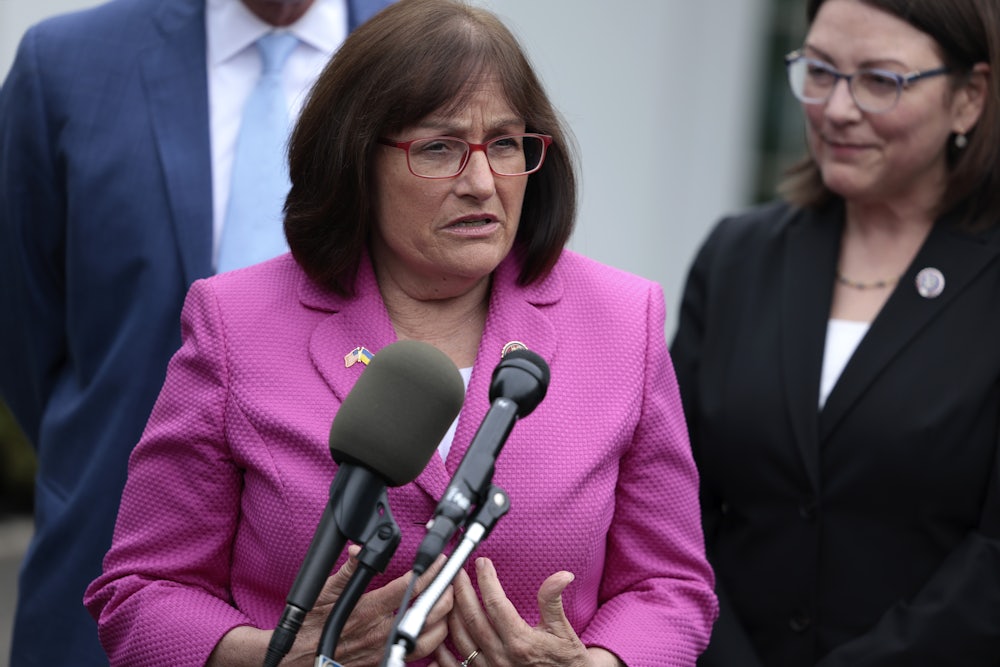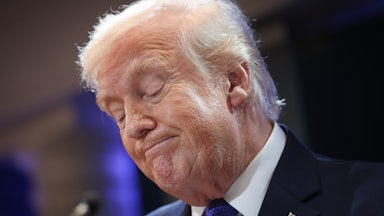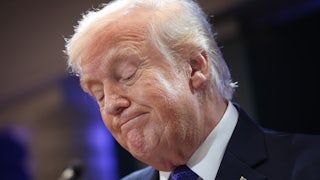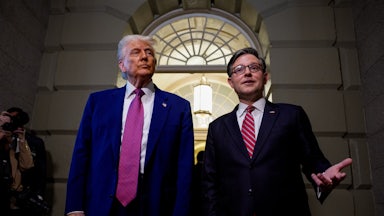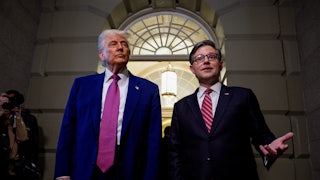Given the consistent examples of significant polarization between the two parties, many Americans may not realize that the House of Representatives actually passes bills with overwhelming bipartisan support quite frequently. It’s just that many of these measures are noncontroversial items, such as the occasional federal building in need of renaming. More rarely do big-ticket policy items pass in the House with such comfortable bipartisan majorities.
But here’s one of them: the Restoring Hope for Mental Health and Well-Being Act, which passed in June with 402 representatives voting in favor. The measure would reauthorize and modify several federal grants and programs related to mental health and address treatment and recovery for opioid addiction. It would also tackle maternal health, eating disorders, and school-based mental health services, among other issues. The bill is awaiting consideration from the Senate, which has yet to take it up.
The measure’s Capitol Hill allies are getting restless as a result. “We have reached an inflection point. We cannot continue on our current path, leaving our constituents to struggle with unmet needs for mental health and substance use support,” a group of representatives in the Bipartisan Addiction and Mental Health Task Force wrote in a letter to congressional leaders last month. “The Restoring Hope for Mental Health and Well-Being Act is a sweeping, strongly bipartisan bill that will help turn the tide of the mental health crisis and should be an end of year priority for the Congress.”
This is becoming a familiar refrain during the current lame-duck session of Congress. With a few weeks left before the end of the year and a laundry list of priorities—each with its own gaggle of impatient advocates urging that their pet project get heaved to the front of the line—the best chance for passing mental health legislation may be to tuck it into the package of bills to fund the government known as the omnibus. There’s just one glaring issue: The deadline to fund the government is December 16, and the top congressional appropriators are still in the midst of negotiations.
When asked whether some measure addressing mental health could be included in the omnibus, Senator Patty Murray, the current chair of the Health, Education, Labor and Pensions Committee and future chair of the Appropriations Committee, replied simply: “We are working to try to get it in.”
Representative Ann Kuster, who founded the Bipartisan Addiction and Mental Health Task Force in the House, said that she is working with Murray to ensure measures related to mental health end up in the omnibus. “We feel good about it,” Kuster told me, somewhat optimistically.
The national mental health crisis—particularly among the country’s youth—is apparently appreciated by many lawmakers, as there are several bills addressing different aspects of treatment and care that could thus be included in the omnibus. A bipartisan foursome of senators, led by Finance Committee Chair Ron Wyden and Ranking Member Mike Crapo, on Thursday released a discussion draft aimed at improving mental health parity in Medicare and Medicaid—that is, ensuring that mental health issues are treated with the same importance as physical health. When I asked if he was hoping the provisions included in the discussion draft could make it into an end-of-year funding deal, Wyden said that “this is a first step, and we are going to go as far as we can.”
GOP Senator Bill Cassidy and Democratic Senator Chris Murphy have also introduced a bill to reauthorize their Mental Health Reform Act. Originally enacted in 2016, the measure established mental health grant programs that expired this past September. Cassidy told me that there had “absolutely” been discussions about the measure but offered some caveats. “The question is, is it a [continuing resolution to fund the government temporarily] or an omnibus? And if it’s an omnibus, what policies do we have in there?” Cassidy said.
Regardless of whether Congress takes significant action on mental health before the end of the year, it’s clear that there is an ongoing emergency. An October poll by CNN and the Kaiser Family Foundation found that nine out of 10 adults believe there is currently a mental health crisis in the United States, with particular concern about the opioid epidemic and mental health issues among teenagers and children. The Centers for Disease Control and Prevention estimates that there were 107,600 overdose deaths between July 2021 and June 2022, with deaths driven by the opioid epidemic. Meanwhile, the pandemic has exacerbated a mental health emergency for children and teens; in 2020, suicide was the second leading cause of death for children between the ages of 10 and 14 and the third leading cause of death among individuals between the ages of 15 and 24.
There is also a national shortage of mental health counselors, which the National Association of Counties urged Congress to address in a November letter, asking lawmakers to “work towards the passage of a bipartisan behavioral health package that enhances our ability to provide comprehensive behavioral health services in all settings, strengthens the behavioral health workforce and increases resident access to services.”
But however much some may hope to address mental health issues before the end of the year, lawmakers have numerous other issues they’d like to cram into the omnibus or the must-pass National Defense Authorization Act, such as reinstating the expanded child tax credit or passing a bill reforming the Electoral Count Act. “I think we all have our wish list of things that we’re trying to get into the [omnibus],” Senator Tim Kaine told me on Thursday.
